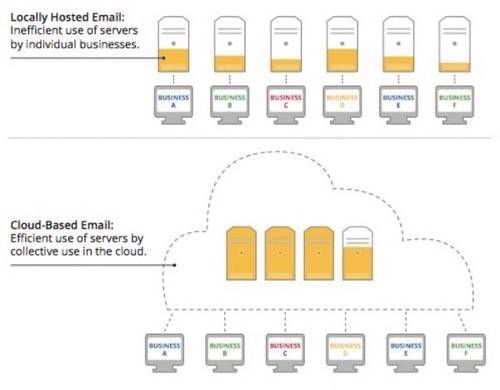It’s easy being green, if you go with Gmail. So says Google, anyway. The company has published a short report that demonstrates the amount of energy required to serve up email for small, medium, and large companies. Thanks to efficiencies of scale, Google claims it “can optimize across boundaries that are not accessible in a traditional software or hardware development environment.”

In Google’s Efficiency at Scale (PDF) paper, Google assumes that small businesses use the most energy per email user at 175 kilowatt hours (kWh). Medium-sized businesses do better at a mere 28.4 kWh, and large businesses consume just 7.6 kWh.
Google, on the other hand, estimates that the annual energy per user on Gmail is less than 2.2 kWh. To put it another way, Google says that per-user carbon emissions (before offsets) are “about 1/80th that of a small business with locally hosted email servers.”
Why is Google’s power consumption per-user so much lower? Efficiency and scale. The same reasons that enterprises are adopting virtualization in droves and starting to adopt cloud services. A small or medium-sized business hosting its own email is going to be much less efficient, especially when running (as Google assumes) the services on their own servers that aren’t fully utilized.

Google is running its own custom servers with high-efficiency power supplies. It’s also making sure that its servers are close to fully utilized. It’s not at all surprising that Google’s services are more energy efficient per user, though the actual numbers are a bit surprising. And going beyond Gmail, this makes a good environmental case for cloud services versus self-hosted services.
Now, if Google would just get around to making it possible to sort my inbox by sender or subject in Gmailt, I’d be green and happy. Being green is only part of the picture, of course. There’s a few trade-offs that companies have to consider when looking at Gmail – not least of which is losing control of services in order to get Google’s efficiencies.
I know that companies are concerned with power savings and being more environmentally friendly – but it is a big enough driver to convert more companies to Gmail?















